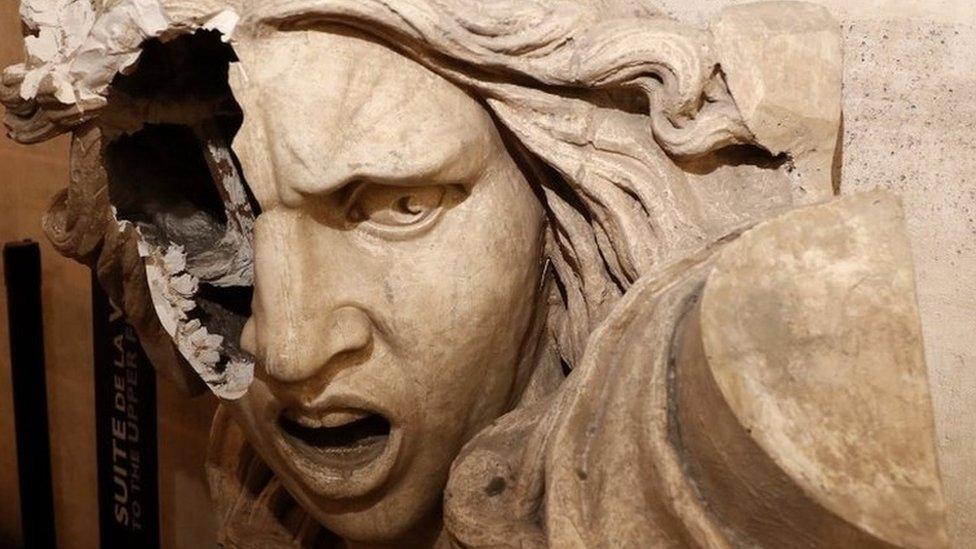France protests: PM Philippe suspends fuel tax rises
- Published
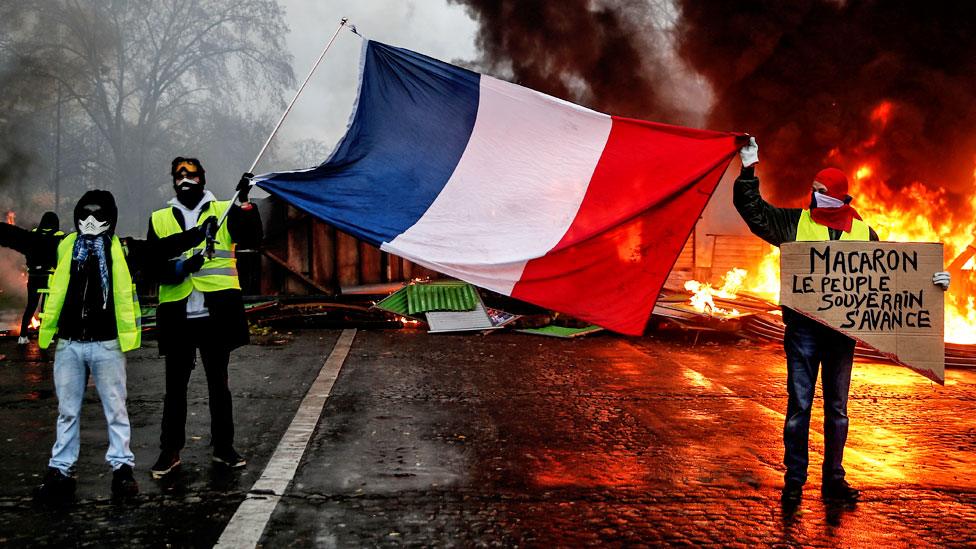
Central Paris has seen vehicles burned, business premises damaged and hundreds of arrests
Fuel tax rises which have led to weeks of violent protests in France have now been postponed for six months.
The move was announced in a televised address by PM Edouard Philippe, who said anyone would have "to be deaf or blind" not to hear or see the anger.
The protests have hit major cities, causing damage and disruption over the past three weekends.
The "gilets jaunes" (yellow vest) protests have now grown to reflect more widespread anger at the government.
The "yellow vests" are so called because they have taken to the streets wearing the high-visibility yellow clothing that is required to be carried in every vehicle by French law.
President Emmanuel Macron was elected last year with an overwhelming mandate for sweeping economic reform, but his popularity has fallen sharply in recent months amid accusations that he is a "president for the rich".
Four people have died since the unrest began and the resulting violence and vandalism have been widely condemned.
What did the prime minister say?
Mr Philippe said that the next planned rise in the so-called carbon tax on vehicle fuel, which had been due to come in on 1 January, would be suspended for six months to allow consultations across the country to see what accompanying measures might be introduced to ease the burden for the worst-off.
He also said planned increases in gas and electricity prices this winter would be halted, and that a toughening of the rules for vehicle emissions tests would also be postponed.
It is a major climbdown by the government of President Macron, who has said the measures are necessary to combat climate change and meet budget deficit reduction targets.
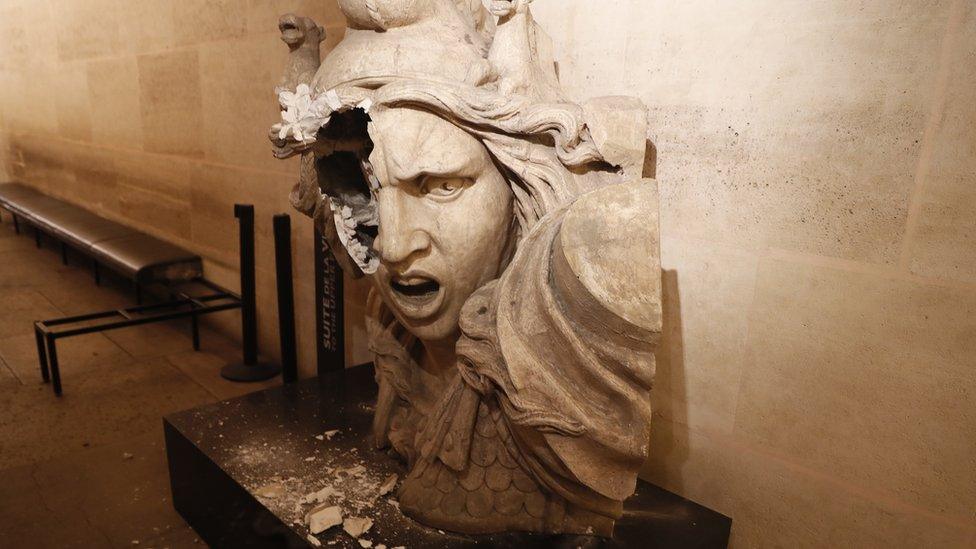
Vandalism was rife during the protests in Paris, including here at the Arc de Triomphe
"This anger, you would have to be deaf and blind not to see it, nor hear it," said Mr Philippe after meeting lawmakers from the governing party La Republique en Marche.
"The French who have donned yellow vests want taxes to drop, and work to pay. That's also what we want. If I didn't manage to explain it, if the ruling majority didn't manage to convince the French, then something must change," he added in his televised address.
"No tax merits putting the unity of the nation in danger."
But he said the violence must stop. "If there is another day of protests, it must be declared in advance and must take place calmly."
He also warned that people should not expect better public services alongside lower taxes.
Why the widespread anger?
Mr Macron was elected on a platform of economic reform which would improve the lives of French people via lower unemployment and a kick-started economy.
But many feel that has not emerged. An analysis of the 2018-19 budget carried out by France's public policy institute, for example, found that incomes for the poorest quarter of households would largely drop or stay the same under the plans.
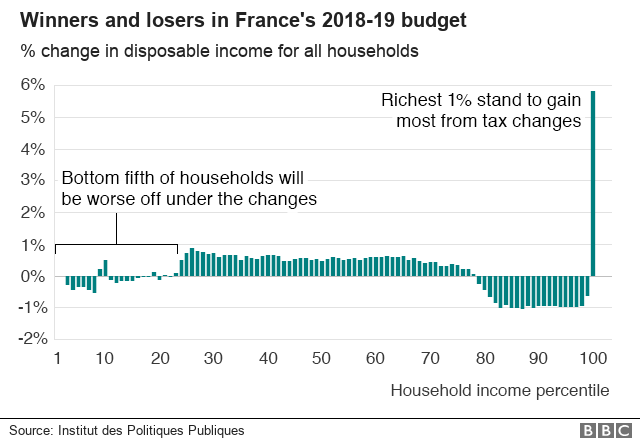
Middle-income earners would see a modest bump - but the greatest beneficiaries would be those who were already wealthy, in the top 1%. The pattern is worse for retired people - almost all of whom will be worse off.

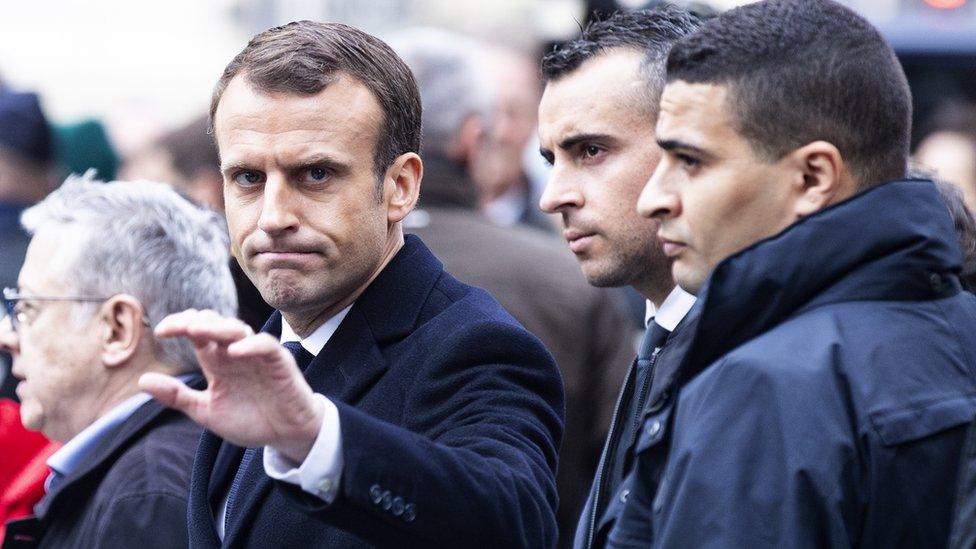
Mr Macron (L) had vowed not to capitulate to street protests
Macron's difficulty
By Hugh Schofield, BBC News, Paris
Will it be enough? That is the first question. Will the yellow vests feel they have won a big enough concession from the government, and therefore call off their protest?
There are plenty of voices that can be heard today saying they want more. Why is it only a suspension of the tax rise, they ask, and not an abolition? What is to guarantee that the government won't reinstate it next June? Maybe we need to step up the pressure.
But by making a concession, the government does not need to satisfy everyone. It needs only to satisfy a large enough bloc of "moderates" among the gilets jaunes, and wean them away from the barricades.
If that happens, then the movement will lose momentum. And though it won't be over, the end will be in sight.
My bet would be that this will be what happens. Opinion polls will show a general approval of the government's concession. The gilets jaunes en masse start to waver. But there's still a protest by hardliners on Saturday.
Maybe a parting shot, but still - and maybe because of that - a dangerous moment.

How has the news been received?
The first question is whether the concession will be enough to satisfy the protesters.
Some have vowed to keep up a blockade at an oil depot in Lorient in the north-west of the country, and there have been calls for further demonstrations on Saturday.
Yellow vest spokesman Benjamin Cauchy said the movement wanted a cancellation - not a postponement - of the taxes.
"The measures announced today do not satisfy us at all, for the simple reason they don't go far enough," he told reporter Chris Bockman in Toulouse.
"The French people want a complete political transformation. They want to change the way things have been for the last 30 years.
"We're sick and tired of taxes being raised and the quality of public services going down. There are more and more people out there who can't make ends meet each month, more and more people are sleeping rough and yet we continue to raise taxes.
"Where is the money going? Where is it being used?"
France fuel protests: Who are the people in the yellow vests?
Fears that violent protests in the capital could continue next weekend have led Paris St Germain to postpone their League 1 home football match on Saturday.
Who are the protesters?
The "gilets jaunes" movement began as a protest against a rise in duties on diesel, which is widely used by French motorists and has long been less heavily taxed than other types of fuel.
The price of diesel, the most commonly used fuel in French cars, has risen by about 23% over the past 12 months to an average of €1.51 (£1.32; $1.71) per litre, its highest point since the early 2000s.
Mr Macron has blamed world oil prices for three-quarters of the price rise, but said higher taxes on fossil fuels were needed to fund renewable energy investments.
The decision to impose a further increase of 6.5 cents on diesel and 2.9 cents on petrol from 1 January 2019 was seen as the final straw for the protesters.
Protesters say Mr Macron is out of touch, particularly with non-city dwellers who rely on their cars.
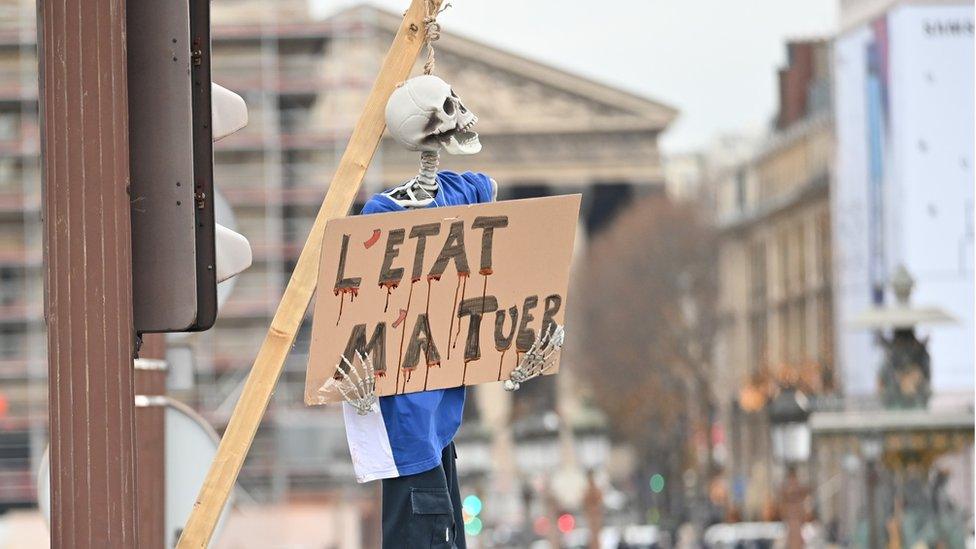
Changes affecting ambulance drivers are part of a raft of reforms by President Macron
The movement has grown to reflect a range of grievances, including the marginalisation of rural areas, high living costs, and general anger at President Macron's economic policies.
The protests have no identifiable leadership and gained momentum via social media, encompassing a range of participants from the anarchist far left to the nationalist far right, and plenty of moderates in between.
In recent days, ambulance drivers and students have launched their own protests.
- Published3 December 2018
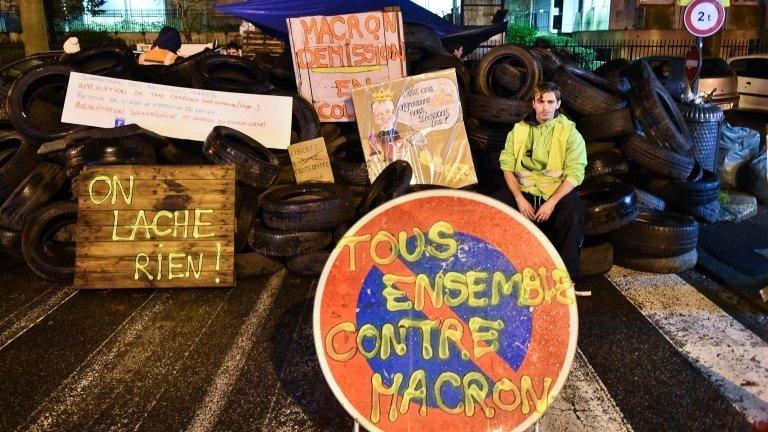
- Published1 December 2018
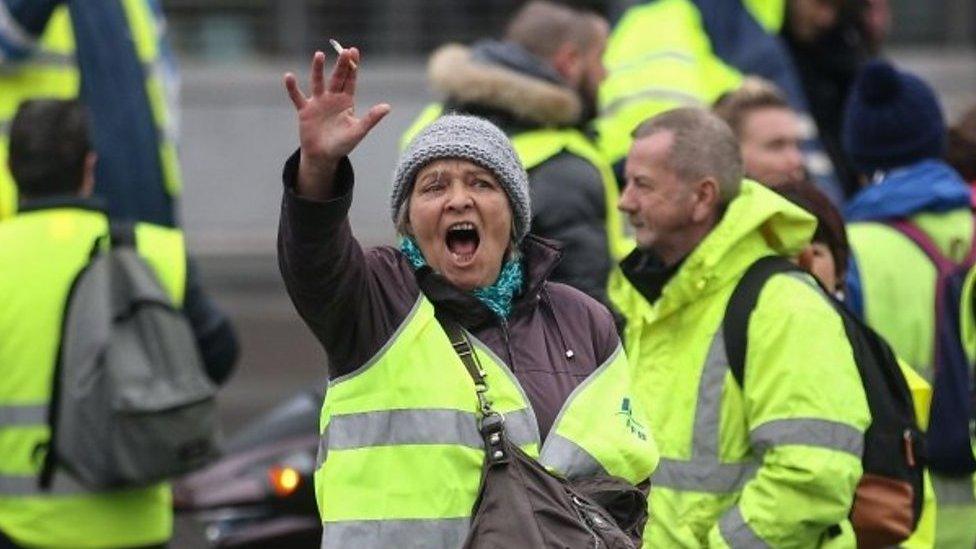
- Published24 November 2018
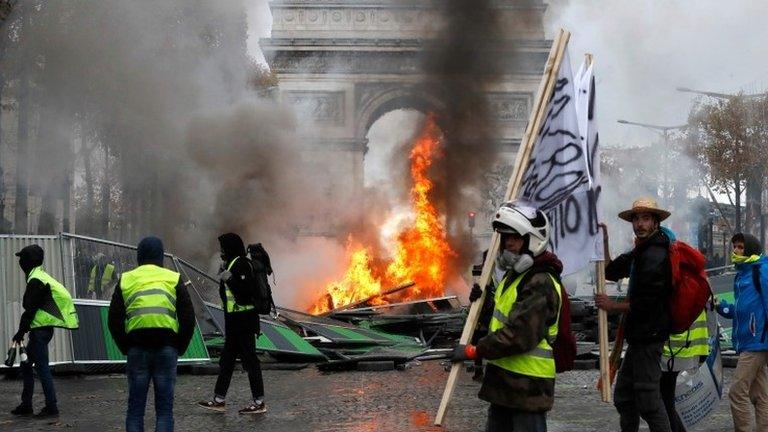
- Published21 November 2018
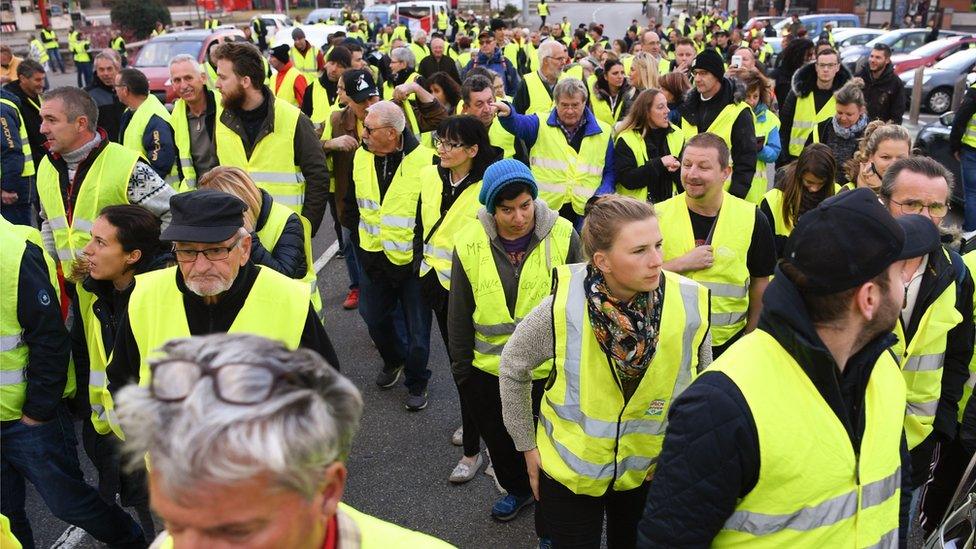
- Published18 September 2018
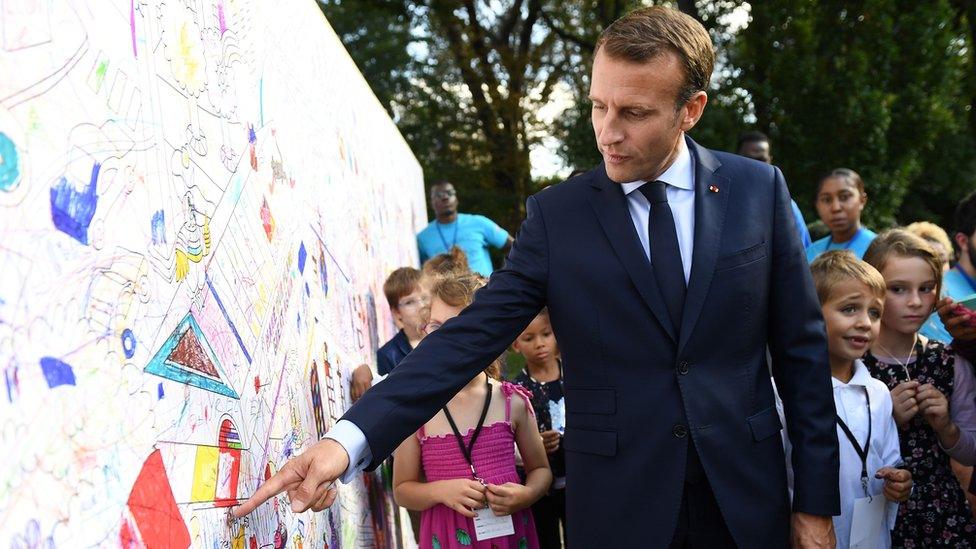
- Published2 December 2018
